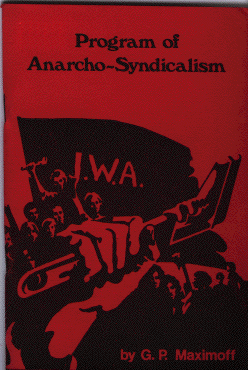Labor in the Transition Period

A social order, based on liberty and the material well-being of all, will have no need to struggle for the rights and protection of labor. Labor, ceasing to be an object of exploitation, will become the guiding principle in the structure of the socio-economic order. Society as a whole will take care of the health and labor of each individual, while each individual will care for the health and labor of society. Each will respect the others' rights.
The producers themselves will have to look after their needs in this respect, i.e. the producers' commune must follow strictly the scientifically determined regulations of the medico-sanitary associations.
Child labor will be abolished. Society will have an obligation to provide children up to the age of eighteen with a comprehensive integral education, preparing them for socially useful work. Thus the problem of child labor in industry will cease to exist. Female labor will be organized according to scientifically determined regulations.
Naturally, the new society will not need to create special institutions for the protection of labor -- that is the job of the federation of Public Health workers, who will work under the control of society as a whole, and of the producers' communes in particular.
In the question of working hours, society will begin in the first stages with the six-hour working day. Any further reduction will be determined by the conference of producers' communes and the Unions of Public Service Workers, and will depend on the quantity of products essential to society, on the number of employed and unemployed producers, and on the improvements in production processes. These conditions, and the degree of the socialization of land, will determine the speed of transition to integrated labor.
In the Transition Period wages will be abolished by reason of the abolition of hired labor. The producer will not be a hired worker, but an active and equal member of the producers' commune from whom no-one will deduct surplus value. Every participant will receive, not wages, but an equal share of the public wealth in whose production he participates equally with everyone else. This share of the public wealth, which will be distributed in terms of both goods and money, and which will be determined scientifically at the very beginning by the General Congress, cannot remain a fixed quantity. Its increase or decrease will depend on the degree of efficiency in the production of public wealth, which will depend in turn, apart from technical advances, on the members of the communistic economy themselves.
Each person, independent of his former social position, will have and will use the right to work. This fundamental principle places on society the dbligation to provide everybody with reasonable productive or socially useful work and, in the event of its inability to do so, to maintain them on an equal level with everybody else, until it may be able to provide work for them. As to those who, though capable of work, desire to utilize their right to indolence, society will make no effort to limit this right, leaving it to them to die of starvation. A society whose very foundation is work, must carry out the principle: "He who does not work of his own free will shall not eat."
Society will have no need to create special institutions for a social insurance. Since it expects all to work, it will determine the minimum and maximum working ages, before and after which all people will be provided, on an equal footing with others, with the necessities for existence and the comforts of life. Similarly, society will provide for invalids, cripples and the sick.

